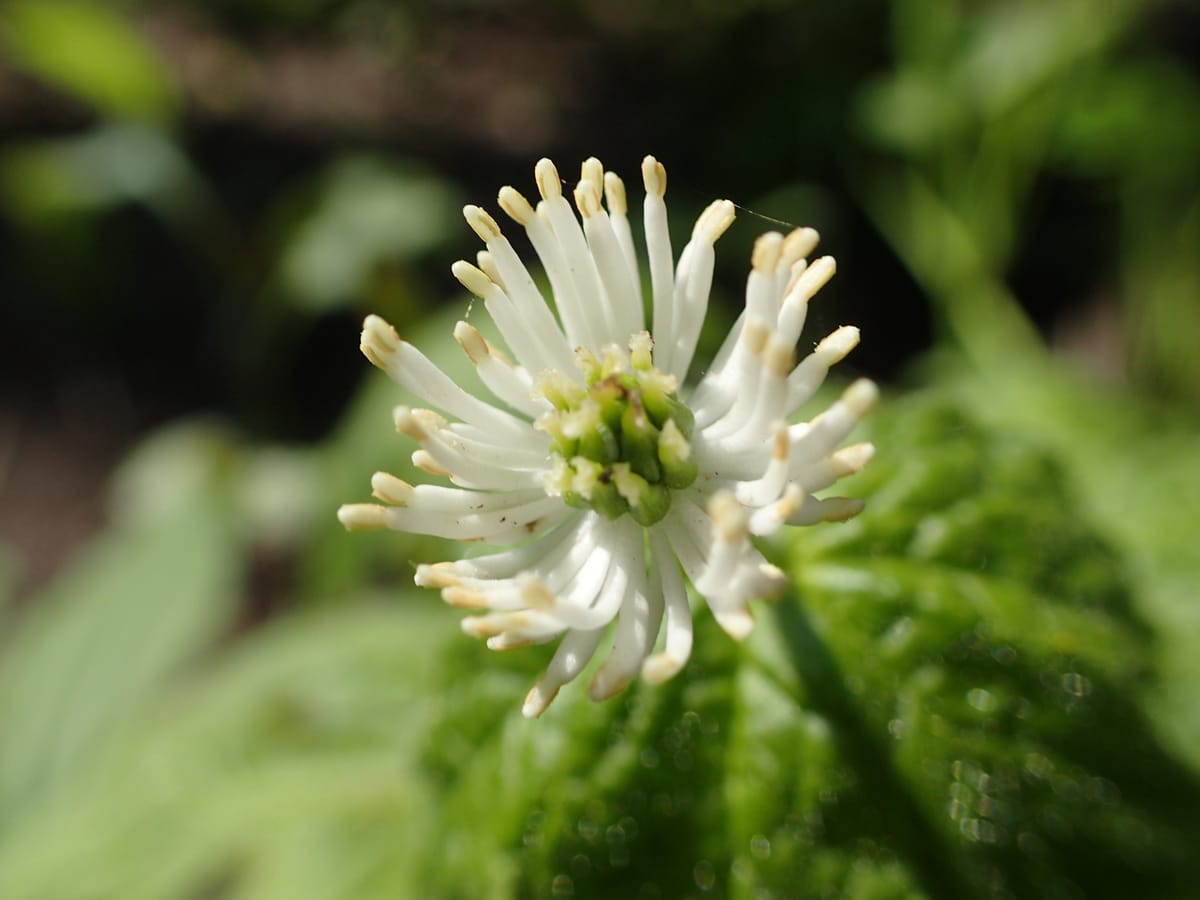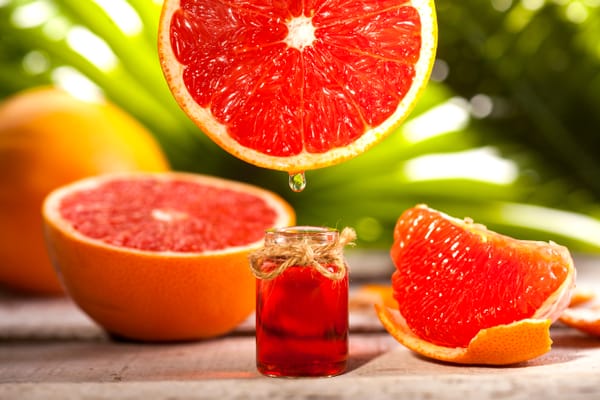Discover the Wonders of Goldenseal Tea: A Natural Remedy
Explore the benefits of goldenseal tea, a natural remedy used for centuries. Learn how to brew the perfect cup and precautions to keep in mind.

Goldenseal tea is more than just a tasty beverage - it's a time-honored tradition in natural health. The first time I tried it, I was amazed by the earthy flavor and the way it made me feel. This simple herb has been used for generations to support overall wellness, thanks to its impressive array of health benefits. Whether you're looking to boost your immunity or just want to feel your best, goldenseal tea is a delicious and effective choice.
But here's the thing: not everyone knows about goldenseal tea. It's like this hidden gem that's been quietly helping people for centuries. So, I want to share my love for this incredible herb with you. Trust me, once you try it, you'll be hooked.
Table of Contents:
- What Is Goldenseal Tea?
- Health Benefits of Goldenseal Tea
- How to Make Goldenseal Tea
- Precautions and Side Effects of Goldenseal Tea
- Goldenseal Tea Variations and Blends
- Goldenseal Tea in Traditional and Folk Medicine
- Other Uses of Goldenseal
- Conclusion
What Is Goldenseal Tea?
Goldenseal tea is a powerful herbal remedy that's been used for centuries. It's made from the dried leaves and roots of the goldenseal plant, also known as Hydrastis canadensis. This potent herb packs a punch when it comes to health benefits. But before we dive into all the amazing things goldenseal tea can do for you, let's take a quick look at its origins.
Origins of Goldenseal Tea
Goldenseal is native to eastern North America and was first used by Native Americans as a medicinal remedy (1). They recognized the incredible healing properties of this herb and used it to treat a wide range of ailments. Fast forward to today, and goldenseal tea is still highly valued for its health benefits. It's become a popular choice among those looking for a natural way to support their overall well-being.
Benefits of Drinking Goldenseal Tea
So, what exactly can goldenseal tea do for you? Here are just a few of the many benefits of this amazing herbal tea:
- Boosts immune system
- Supports digestive health
- Helps regulate blood sugar levels
- Promotes cardiovascular health
We'll dive deeper into each of these benefits in a bit. But first, let's talk about how to prepare the perfect cup of goldenseal tea.
How to Prepare Goldenseal Tea
Brewing a cup of goldenseal tea is easy. Here's what you'll need:
- 1 tsp of dried goldenseal herb (leaves or roots)
- 8 oz of boiling water
- Honey or lemon (optional)
Simply steep the goldenseal in hot water for 10-15 minutes, strain, and enjoy. You can add a touch of honey or lemon to taste. The longer you let it steep, the stronger the tea will be.
Health Benefits of Goldenseal Tea
Now, let's take a closer look at some of the incredible health benefits of drinking goldenseal tea regularly.
Boosting Immune System
One of the most well-known benefits of goldenseal tea is its ability to support a healthy immune system. It contains compounds like berberine and hydrastine that have been shown to have antimicrobial and anti-inflammatory properties (2, 3). Drinking goldenseal tea regularly may help your body fight off infections and illnesses more effectively. I know whenever I feel a cold coming on, I always reach for a cup of this powerful tea.
Supporting Digestive Health
Goldenseal tea can also do wonders for your digestive system. It has traditionally been used to help soothe upset stomachs, relieve constipation, and promote healthy gut function (4). The antimicrobial properties of goldenseal may also help balance gut bacteria and support a healthy digestive tract. If you struggle with occasional digestive issues, try incorporating goldenseal tea into your daily routine.
Regulating Blood Sugar Levels
Another potential benefit of goldenseal tea is its ability to help regulate blood sugar levels. Some studies suggest that the berberine found in goldenseal may have anti-diabetic effects and could be useful for managing type 2 diabetes (5). Of course, more research is needed to fully understand these effects. But if you're looking for a natural way to support healthy blood sugar levels, goldenseal tea may be worth considering.
Promoting Cardiovascular Health
Lastly, drinking goldenseal tea may also support heart health. The berberine in goldenseal has been shown to have potential cardiovascular benefits, such as reducing inflammation and improving cholesterol levels (6). While more studies are needed, incorporating goldenseal tea into a heart-healthy lifestyle may provide some added benefits. As someone with a family history of heart disease, I make sure to drink this tea often as part of my preventative care routine.
How to Make Goldenseal Tea
Now that you know all about the amazing benefits of goldenseal tea, you're probably eager to start brewing your own cup at home. Here's a step-by-step guide to making the perfect goldenseal tea.
Choosing the Right Goldenseal Tea
The first step is to choose a high-quality goldenseal tea. Look for organic, pure goldenseal leaf or root tea from a reputable source. Avoid teas that have added flavors or ingredients, as these can diminish the health benefits. Personally, I always opt for loose leaf goldenseal tea. I find that it provides a fresher, more potent brew compared to tea bags. But if you prefer the convenience of tea bags, those will work too.
Preparing Loose Leaf Goldenseal Tea
To prepare loose leaf goldenseal tea, you'll need:
- 1 tsp of dried goldenseal herb per cup of water
- A tea infuser or strainer
- Freshly boiled water
Simply place the goldenseal into your tea infuser, then pour the hot water over it. Let it steep for 10-15 minutes, then remove the infuser and enjoy. The longer you steep, the stronger the tea will be.
Using Goldenseal Tea Bags
If you're using goldenseal tea bags, the process is even easier. Just place one tea bag in your cup, pour over the boiling water, and let it steep for 5-10 minutes before removing the bag. I find that tea bags tend to produce a milder tea compared to loose leaf. So if you like a stronger brew, you may want to use two bags per cup or steep for a bit longer.
Optimal Steeping Time and Temperature
To get the most out of your goldenseal tea, it's important to use the right water temperature and steeping time. Goldenseal tea should be steeped in freshly boiled water that's around 208°F (98°C). As for steeping time, a good general guideline is:
- 3-5 minutes for a milder tea
- 5-10 minutes for a regular strength tea
- 10-15 minutes for a strong, medicinal tea
Experiment to find the steeping time that produces the taste and strength you prefer. I personally like a nice, strong goldenseal tea, so I always let mine steep for the full 15 minutes.
Precautions and Side Effects of Goldenseal Tea
While goldenseal tea is generally safe for most people when consumed in moderation, there are a few precautions and potential side effects to be aware of.
Potential Interactions with Medications
Goldenseal may interact with certain medications, such as blood thinners, diabetes drugs, and medications that are changed by the liver (4). If you're taking any medications, it's important to talk to your healthcare provider before adding goldenseal tea to your routine. I learned this the hard way years ago when I started drinking goldenseal tea while on blood pressure medication. I ended up with some unpleasant side effects until I talked to my doctor and adjusted my dosage.
Pregnancy and Breastfeeding Considerations
Pregnant and breastfeeding women should avoid drinking goldenseal tea, as it may have adverse effects on the baby. The safety of goldenseal during pregnancy and lactation has not been established, so it's best to err on the side of caution (7). As a new mom, I know how tempting it can be to turn to herbal remedies. But when it comes to goldenseal tea, it's just not worth the risk. Stick to safer options during this precious time.
Allergic Reactions to Goldenseal
In rare cases, some people may experience an allergic reaction to goldenseal. Symptoms can include itching, rash, swelling, and difficulty breathing (8). If you notice any of these symptoms after drinking goldenseal tea, discontinue use immediately and seek medical attention if necessary. I have a friend who discovered she was allergic to goldenseal the hard way - by breaking out in hives after her first cup of tea. Thankfully, her reaction was mild and easily treated with antihistamines. But it just goes to show that even natural remedies can cause adverse effects in some people. The bottom line is, listen to your body and talk to your healthcare provider before adding goldenseal tea to your routine. While this herbal tea has many potential benefits, it's not right for everyone. As with any new supplement or remedy, it's always best to proceed with caution and under the guidance of a qualified professional.
Key Takeaway:
Goldenseal tea, a centuries-old remedy, boosts your immune system, supports digestion, helps control blood sugar levels, and promotes heart health. Just steep 1 tsp of dried goldenseal in boiling water for 10-15 minutes. Remember to choose high-quality leaves or roots for the best benefits but consult with a healthcare provider if you're on medication or pregnant.
Goldenseal Tea Variations and Blends
Goldenseal tea is a powerful herbal remedy on its own, but sometimes I like to mix things up and create custom blends. It's like being a mad scientist in the kitchen, except instead of explosions, you get a delicious and healthy cup of tea.
Goldenseal and Echinacea Blend
One of my favorite blends is goldenseal and echinacea. Echinacea is another herb that's known for its immune-boosting properties, so combining it with goldenseal is like giving your immune system a super-powered shield. I like to use organic echinacea herb and mix it with my goldenseal tea. The result is a slightly sweet and earthy flavor that's perfect for sipping on a cold day. Plus, I feel like I'm doing something good for my body with every cup.
Goldenseal and Chamomile Tea
When I'm feeling stressed or anxious, I turn to my trusty blend of goldenseal and chamomile tea. Chamomile is known for its calming effects, and when combined with the soothing properties of goldenseal, it's like a warm hug in a cup. I love to curl up with a book and a steaming mug of this blend before bed. It helps me unwind and drift off to sleep with ease. And the best part? I wake up feeling refreshed and ready to tackle the day.
Goldenseal and Burdock Root Tea
Burdock root is another herb that's often used in traditional medicine, and it pairs perfectly with goldenseal. Burdock root is known for its detoxifying properties, so combining it with goldenseal is like giving your body a deep clean from the inside out. I like to simmer burdock root and goldenseal together for a few minutes to really infuse the flavors. The result is a slightly bitter but invigorating tea that I swear makes me feel like a new person.
Creating Your Own Goldenseal Tea Blends
The beauty of goldenseal tea is that it's so versatile. You can mix and match it with all sorts of other herbs to create your own custom blends. Some of my other favorite herbs to blend with goldenseal include:
- Black cohosh
- Kava kava
- Catnip
- Dandelion
- Cat's claw
The possibilities are endless, so don't be afraid to get creative and experiment with different combinations. Who knows, you might just discover your new favorite tea blend.
Goldenseal Tea in Traditional and Folk Medicine
Goldenseal has a long and fascinating history of use in traditional and folk medicine. It's been used for centuries by various cultures around the world, each with their own unique ways of preparing and using the herb.
Native American Uses of Goldenseal
Native Americans were among the first to discover the healing properties of goldenseal. They used the herb to treat a wide range of ailments, from digestive issues to skin infections. The Cherokee people, in particular, held goldenseal in high regard. They believed that the herb had spiritual properties and used it in ceremonies and rituals. They also used goldenseal to make yellow dye for face paint and other decorative purposes.
Traditional Chinese Medicine Applications
Goldenseal may be native to North America, but it's also found its way into traditional Chinese medicine (TCM). In TCM, goldenseal is believed to have cooling properties and is used to treat conditions associated with heat, such as fever and inflammation. TCM practitioners often use goldenseal in combination with other herbs to create custom formulas tailored to each patient's unique needs. Some common herbs that are paired with goldenseal in TCM include coptis and scutellaria.
European Herbal Medicine Practices
Goldenseal also has a place in European herbal medicine. In the 19th century, European settlers in North America learned about the healing properties of goldenseal from Native American tribes and began using it in their own herbal remedies. European herbalists used goldenseal to treat a variety of conditions, including digestive issues, respiratory infections, and skin problems. They often prepared the herb as a tea or tincture and used it both internally and externally.
Other Uses of Goldenseal
Goldenseal is a versatile herb that has many uses beyond just medicinal applications. One of the most interesting uses of goldenseal is as a natural dye. The roots and rhizomes of the goldenseal plant contain a compound called berberine, which gives them a bright yellow color. This compound can be extracted and used to create a beautiful, natural yellow dye that has been used for centuries by various cultures around the world. Native Americans, in particular, were known for using goldenseal as a dye for their clothing, baskets, and other textiles. They also used it to create vibrant yellow face paints that were used in ceremonies and rituals. Today, natural dyes like goldenseal are becoming increasingly popular as people look for more sustainable and eco-friendly alternatives to synthetic dyes. Goldenseal dye can be used to create a range of beautiful yellow hues on fabric, paper, and even wood. So the next time you're sipping on a cup of goldenseal tea, remember that this amazing herb has a long and fascinating history that goes far beyond just its medicinal properties. From ancient Native American traditions to modern-day natural dyeing practices, goldenseal truly is a herb of many talents.
Key Takeaway:
Goldenseal tea, a versatile natural remedy, can be mixed with herbs like echinacea for immune support or chamomile to relax. Its history spans from Native American medicine to modern uses in teas and dyes. Don't shy away from experimenting with blends to discover health benefits and flavors.
Conclusion
So, there you have it - the wonders of goldenseal tea. It's not just a tasty beverage; it's a natural remedy that's been trusted for generations. From boosting your immune system to supporting digestive health, this herb has got your back.
But remember, like with any herbal remedy, it's important to use goldenseal tea responsibly. Talk to your healthcare provider if you have any concerns, and always listen to your body.
Now, go ahead and brew yourself a cup of goldenseal tea. Savor the flavor, and know that you're doing something good for your health. And who knows? Maybe you'll become a goldenseal tea enthusiast like me.




